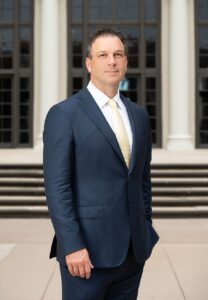Premises liability is a form of negligence specific to personal injury claims regarding someone else’s property. Proving negligence in a DC premises liability is based upon factors like your right to be on the property, the knowledge of potential harm by the property owner, and the amount of time that has elapsed since the injury occurred. If you get into a serious accident on someone else’s property, it may be caused by negligence. You will need a knowledgeable DC premises liability lawyer to help with your claim.
Our attorneys at Regan Zambri Long help victims and their families recover damages for medical bills, lost wages, wrongful death claims, and more. Not all personal injury lawyers are equipped to handle the nuances of a premises liability accident, but we are. We hold the at-fault party accountable so you can move forward.
Contact Us Today to Schedule
a Free Consultation
 Negligence, in the context of premises liability, refers to the failure of the property owner or manager to maintain a safe environment for visitors.
Negligence, in the context of premises liability, refers to the failure of the property owner or manager to maintain a safe environment for visitors.
In the District of Columbia, for a premises liability claim to be successful, the plaintiff must prove:
To prove that the property owner or occupier was negligent in the maintenance of the property, you must show that the owner knew or should have known about the hazardous condition and failed to correct it. Or, in some cases, simply provide a warning of the potential harm.
Washington, DC, operates under the contributory negligence rule, which means if the plaintiff is found even minimally responsible for their injury, they may be barred from recovering any damages.
For example, if you clearly saw a puddle in a grocery store from a spill and walked through it anyway, you could be deemed partially responsible for the injuries you sustained.
However, contributory negligence should not keep you from seeking legal recourse. An experienced premises liability lawyer from Regan Zambri Long will help you bring a suit against the negligent property owner so you get the compensation you need to move past this event.
Premises liability cases include a variety of scenarios where an individual becomes injured on someone else’s property due to the property owner’s negligence. In all instances, it is the property owner’s responsibility to maintain a safe environment for visitors, customers, and even trespassers in some instances.
Some of the most common examples of DC premises liability cases include:
One of the most common types of premises liability cases, slip and fall incidents occur when a person is injured due to a slip, trip, or fall resulting from unsafe conditions on a property. Over 6.9 million people were estimated to be treated in emergency rooms for fall-related injuries in 2021 alone.
Common causes of slip and falls include wet floors without warning signs, uneven flooring, or poorly maintained staircases.
Under premises liability law, property owners must maintain their properties to ensure safety. This includes fixing broken handrails or faulty elevators, repairing crumbling steps, etc.
In some cases, the property may be defective, including poor construction, faulty building materials, or structural failure. In these cases, the construction firm may be liable for the accident if the statute of repose has not passed.
Premises liability is not just about structural integrity but also security features. A property owner must maintain a safe and secure environment to protect visitors, tenants, etc. This can include property lighting, locks, and security measures.
Suppose a property owner is made aware that a residential building, commercial property or hotel is not secure and assaults or robberies occur. In that case, they can be liable for the victim’s losses and injuries.
Swimming pools may be fun in the summertime. Still, those with pools on their property are legally required to adhere to their area’s safety regulations to prevent accidents. Most commonly, these regulations involve proper fencing. Failure to provide adequate security around their property can result in a swimming pool accident.
Animal attacks, specifically dog bites, also fall under premises liability. If it is known that a pet is dangerous and is not adequately restrained and an accident occurs, the owner can be held responsible.
If you are on someone else’s property and become injured because the property was improperly maintained, had negligent security, etc., you likely have a right to a personal injury claim as the duty of care was breached. However, certain statuses a person may hold impact their ability to collect financial compensation for injuries.
If a property owner fails to maintain a property and an accident happens, a personal injury attorney can help you recover compensation. Compensation available in premises liability cases includes:
However, it is best to work with a premises liability attorney to recover compensation.
A premises liability case is strongest when there is no doubt the property owner breached their duty of care owed to visitors. Unfortunately, those cases are often far and few between as defendants will do everything they can to show they owe nothing to the injury victim and there was no breach.
Because of this, you need an experienced DC liability lawyer who understands premises liability laws and can take on negligent property owners.
If you or a loved one suffered a premises liability injury and are seeking compensation for a slip and fall, an injury on government property, or a business owner’s negligence, we can help.
For a no-obligation, free initial consultation, contact the Washington, DC premises liability attorneys of Regan Zambri Long.